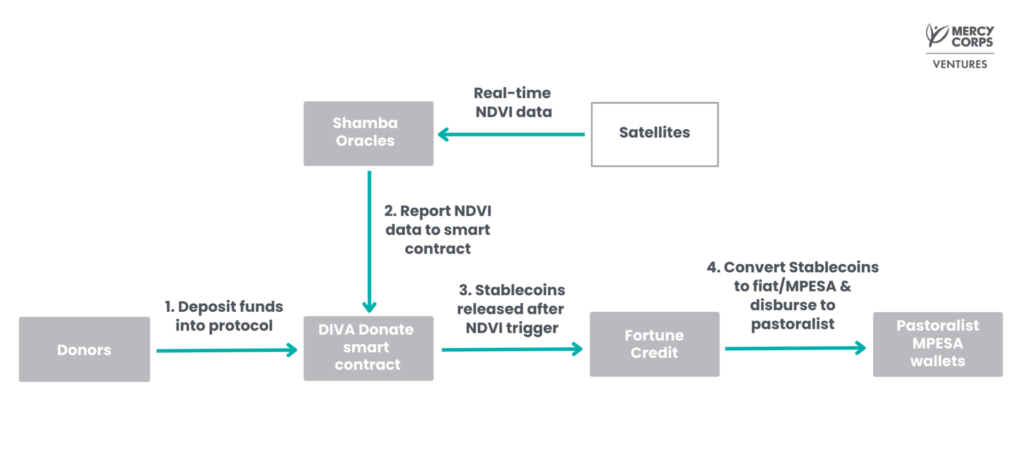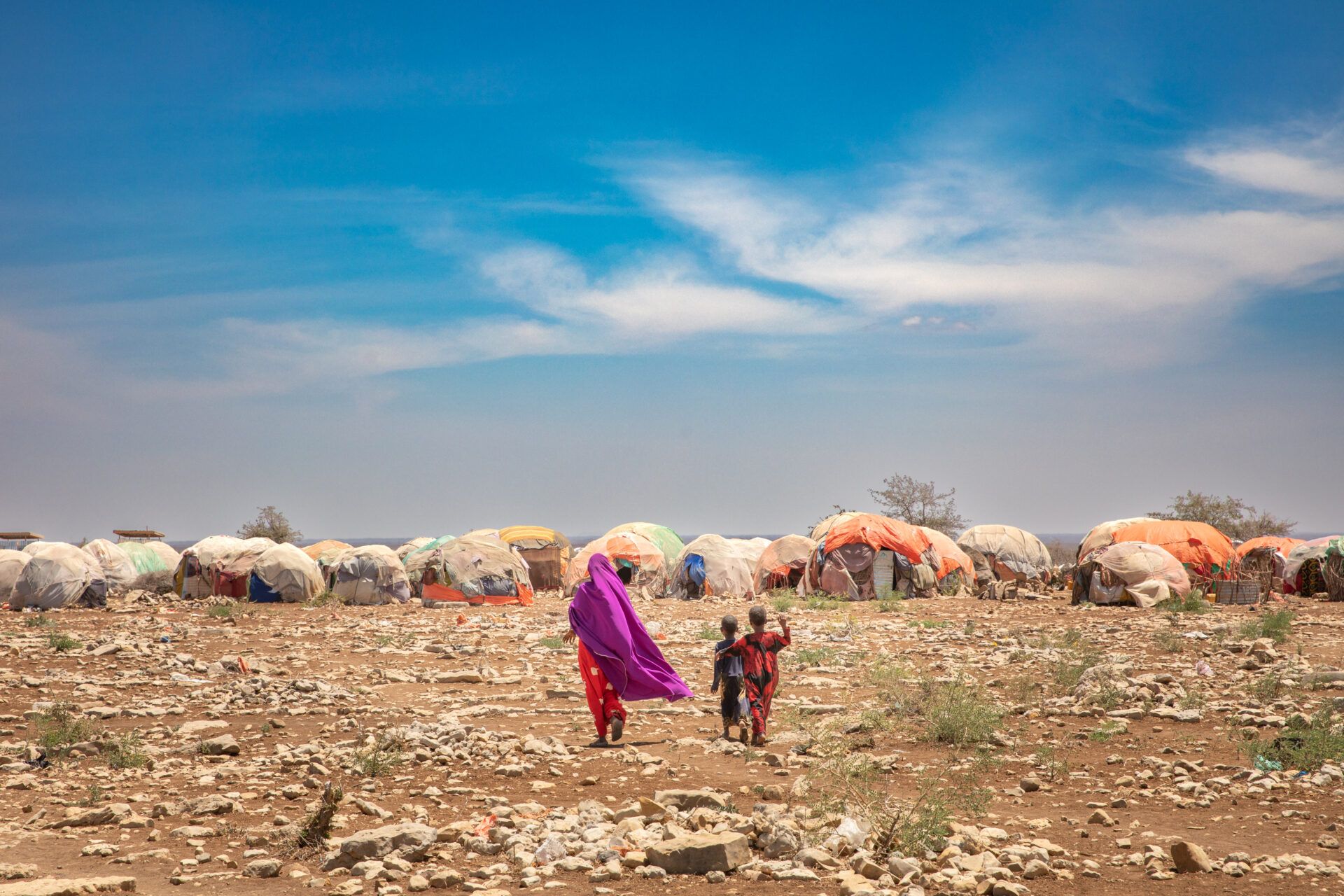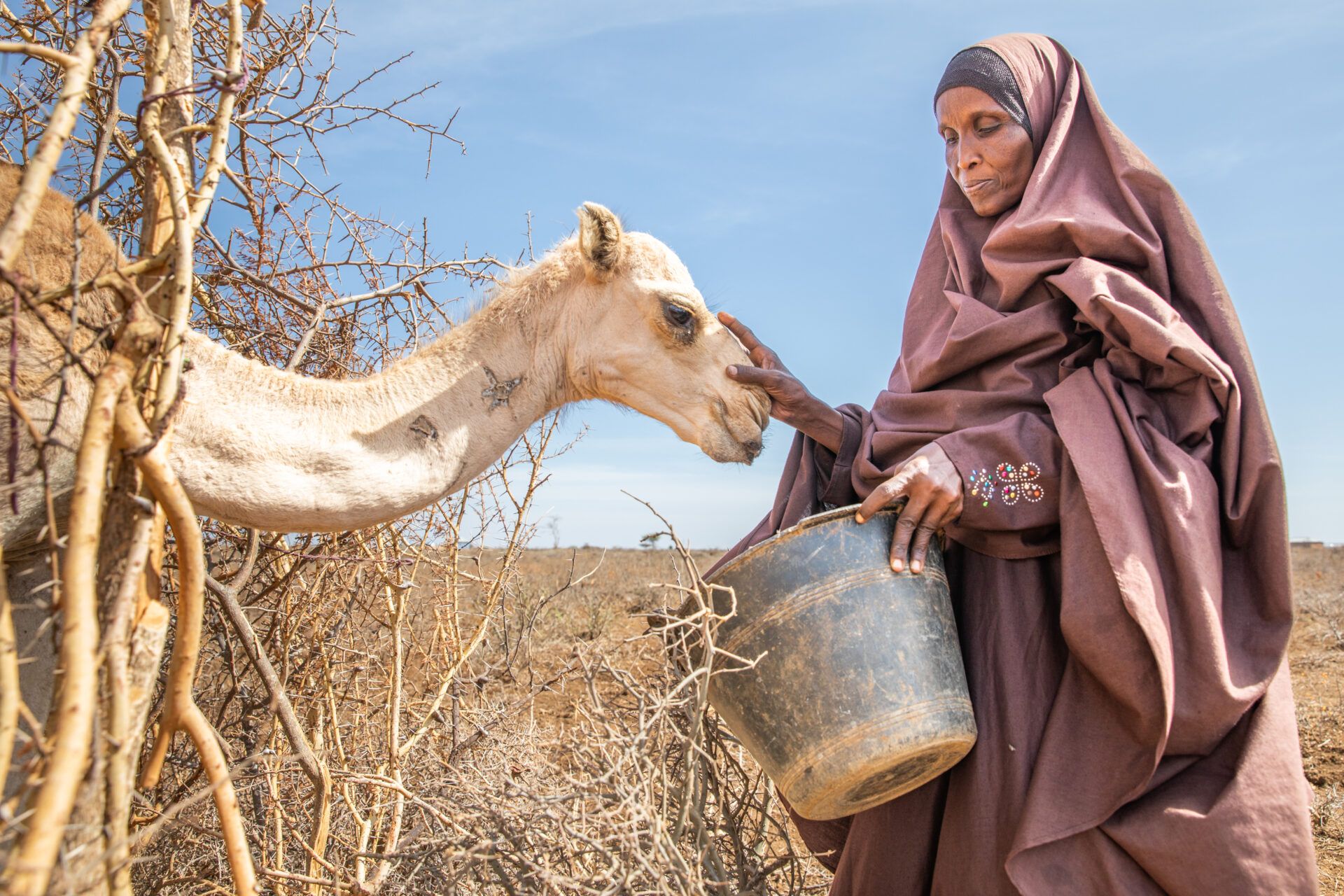Timothy Asiimwe is the innovation project manager at Mercy Corps Ventures, an active seed- and early-stage investor in emerging markets. The views expressed in this guest commentary are the author’s own and do not necessarily reflect those of AgFunderNews.
Pastoralism is a way of life for some 50 million people across sub-Saharan Africa.
Put simply, pastoralists are people who depend primarily on livestock or livestock products for income and food. Nomadism and transhumance (droving livestock over long distances) are key features of pastoralist communities in Africa —they graze their animals on open-access pastures, and move with them seasonally.
Changing weather patterns are threatening the livelihoods of pastoralists in the eastern Horn of Africa. The recent and unprecedented multi-year drought has led to the loss of over 7 million livestock and put millions at risk of starvation in Ethiopia, Kenya, and Somalia. Over $2 billion in humanitarian aid has been earmarked to respond to this disaster. However, much of this support only came after the affected populations had already experienced some of the worst effects of the drought.
Aid distributed to groups impacted by climate disasters is much more effective if it is received before the occurrence of the disaster. For instance, the World Food Programme found that households that received cash transfers before flooding in Bangladesh were 36% less likely to go a day without eating and 17% more likely to evacuate their livestock, compared to households that didn’t receive a transfer.
To that end, Mercy Corps Ventures has partnered with Fortune Credit, Shamba Network, and DIVA Technologies to launch a new pilot to test the use of blockchain-powered smart contracts to deliver anticipatory cash transfers to pastoralist communities in two Kenyan counties: Laikipia and Kajiado.

Fortune Credit Limited is a microfinance institution in Kenya, providing credit, insurance and other non-financial services to 50,000+ customers in Kenya including smallholder farmers, female micro-retailers, and youth in the mobility industry.
Shamba Network develops an oracle for the collection, analytics, and use of ecological data on-chain. Through the Shamba oracle, smart contracts get updated on what is happening in real time and use this data to trigger a wide variety of actions. Shamba’s oracle relies on satellite data to monitor vegetation levels in a given area.
DIVA Technologies is the developer of DIVA Donate, a conditional donation platform that allows users to donate to ongoing campaigns in a transparent, trustless, and cost-effective manner.
“Our mission is to provide products that enhance financial inclusion but we found that some of our target customers such as pastoralists could not afford to pay the insurance premiums we charged,” says Fortune Credit founder and CEO Janet Kuteli. “So we decided to seek out partners such as DIVA and Shamba that could enable us to expand our reach to offer solutions to vulnerable populations that are largely ignored by traditional financial institutions”
The pilot
At the core of this pilot is a smart contract which holds donated funds in escrow and disburses them to enrolled pastoralists only if the pasture conditions are deemed distressful for pastoralists.
The smart contract assesses pasture conditions using an indicator called NDVI (Normalized Difference Vegetation Index). NDVI is a widely-used metric for quantifying the health and density of vegetation using sensor data; it has successfully been used by the International Livestock Insurance Institute (ILRI) as the “index” for their index-based livestock insurance products (IBLI) targeted at pastoralists.
NDVI is a leading indicator of livestock mortality since vegetation typically tracks rainfall performance. The exact trigger points and payout curve will be defined based on in-depth analysis of historical weather and NDVI patterns for each pilot location.
Through this pilot, we hope to demonstrate how blockchain-based solutions can be used to scale anticipatory humanitarian interventions, resulting in faster response times and limiting the impacts of climate shocks on vulnerable communities.

The hypotheses
On-chain remote-sensing data and smart contracts increase the speed and reduce the costs of delivery of humanitarian aid. This will be measured by:
- % reduction in time to transfer funds end-to-end, from donor to final receiver
- % reduction in cost of delivering aid to pastoralists
Anticipatory transfers for drought risk mitigation positively impact the livelihoods of pastoralists. This will be measured by:
- % change in livestock count (+ reasons for change)
- Change in available payment options for an emergency
- Change in savings balance
- Qualitative feedback on financial security e.g stress levels
Blockchain-based transparency of donation flows is favorably rated by donors. This will be measured by:
- NPS of donors
- Repeat donor rate
Through the use of self-executing smart contracts, we are testing a new way to shorten the response time for humanitarian aid providers. Additionally, by fully automating the disbursement process, this pilot aims to highlight how blockchain-based solutions can eliminate many of the administrative challenges and delays associated with manual distribution.
Scaling this pilot could increase the speed of delivery of humanitarian aid for climate-vulnerable communities, while increasing transparency of the flow of funds. While NDVI is a reasonable metric to evaluate the on-ground effects of drought, additional data sources such as the National Drought Management Authority (NDMA) drought early warning bulletins can be incorporated, when scaling this pilot, to increase accuracy of the trigger points.
Stay tuned for updates, evidence, and insights on our other Mercy Corps Ventures pilots, responsibly testing Web3 solutions for unbanked and underbanked populations in emerging markets.





